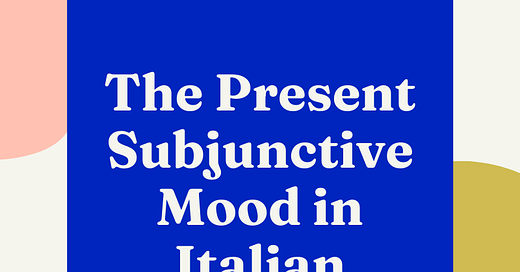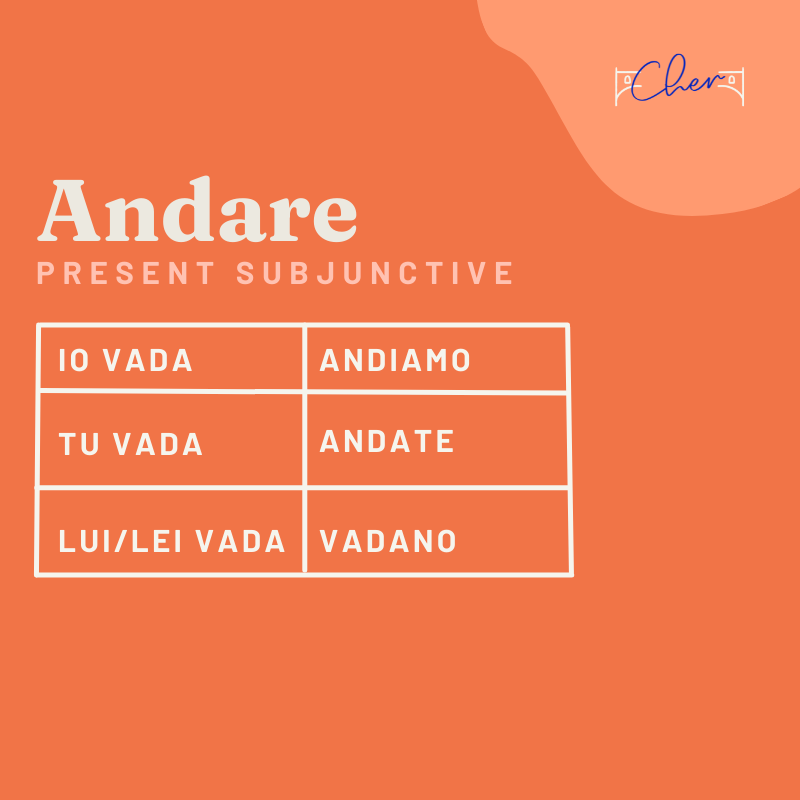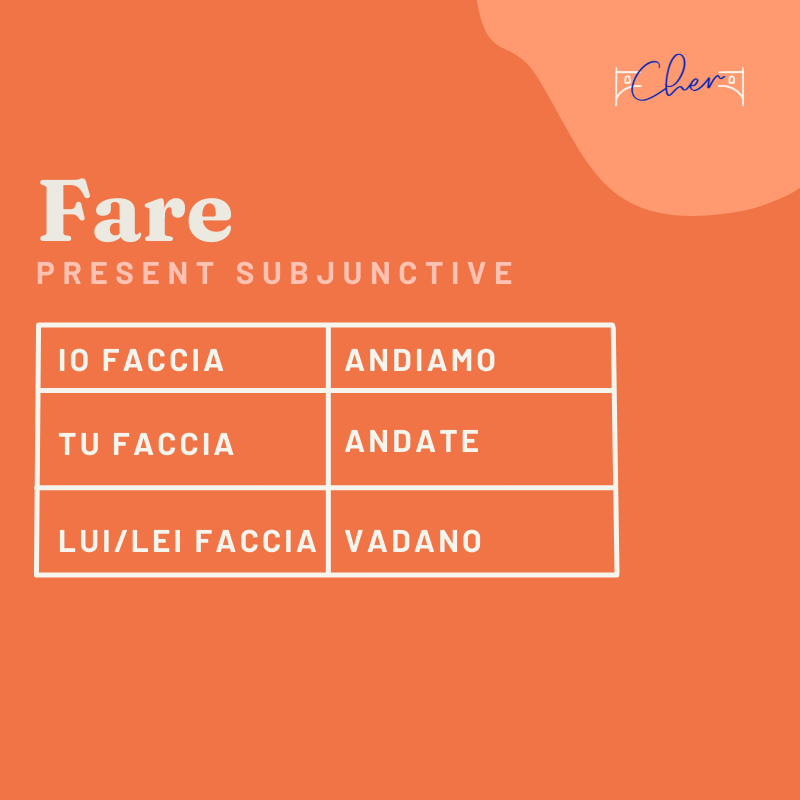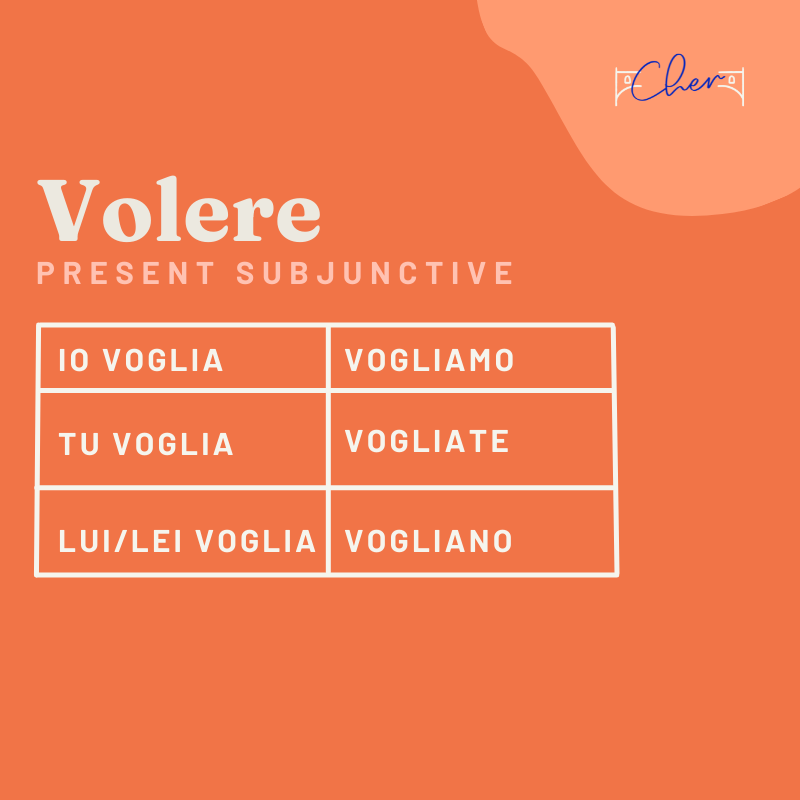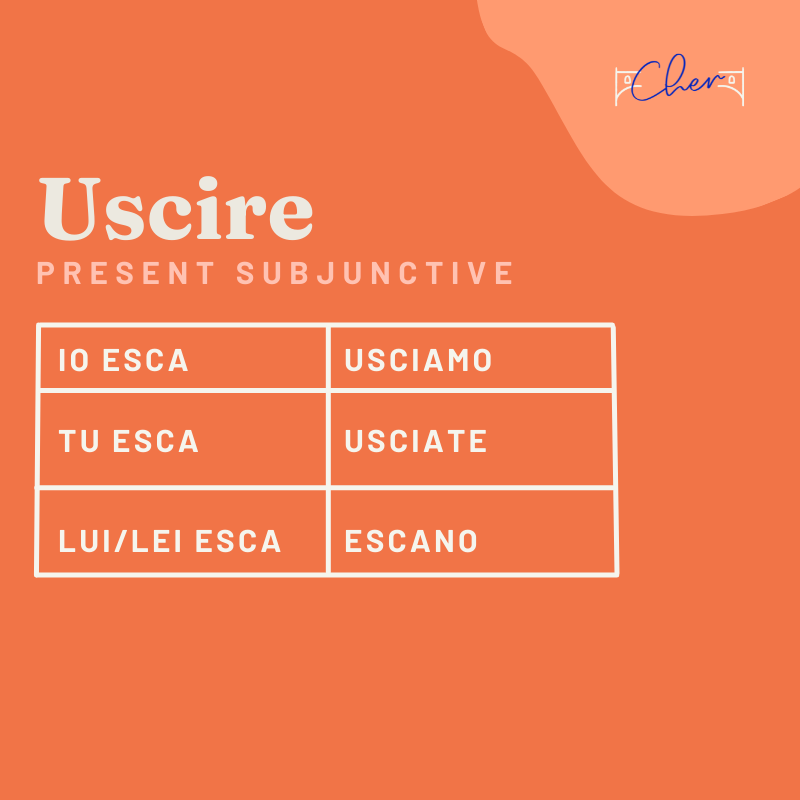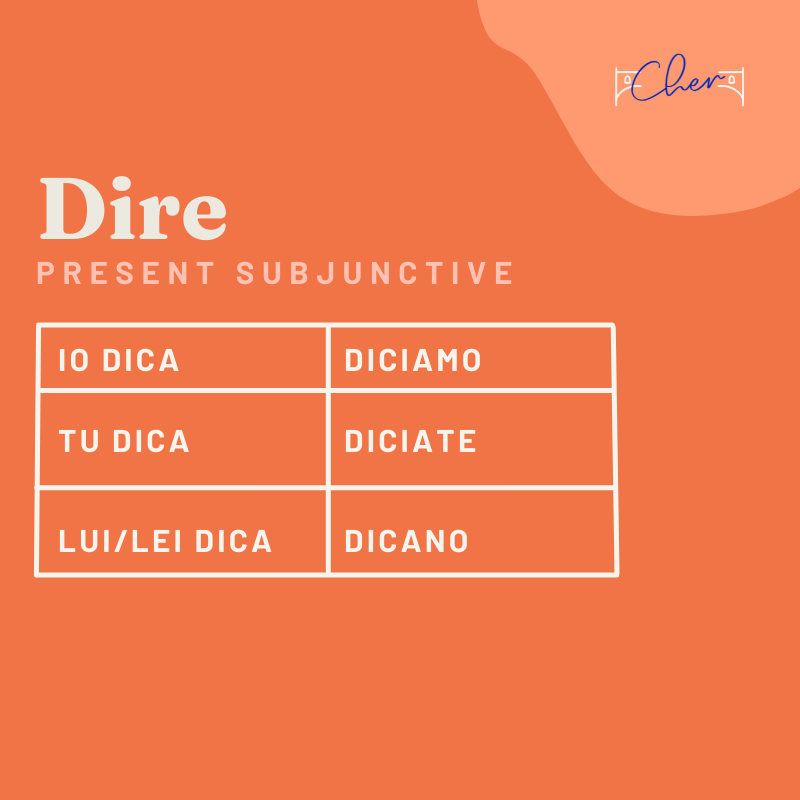The Present Subjunctive Mood in Italian
Or the tense that even Italians are confused about
To be honest, before I started studying Italian full-force, I didn't know that the subjective tense (il congiuntivo) was a thing.
Perhaps this is why I proceeded to let it be a menace to me for six months before I could finally use it correctly in conversation. I can’t take all of the credit. I had a teacher that wondered how I ever learned Italian without running into it and encouraged, for lack of a better word, me to improve. For this, I am grateful.
Even then, learning is a process, and I'm still refining how I use it.
To put it in the most basic terms, you use it when:
You have an opinion.
You have a desire or a wish that something would be a certain way.
You're experiencing an emotion (happy, sad, sorry, scared).
You're suggesting something to someone.
So, a lot, right?
It's the proper form, but as you'll notice in conversation, you won't hear it being used correctly even with native speakers.
Just remember it's the same way we constantly misuse English and ignore the 'proper' way it's supposed to be spoken.
As a constantly evolving language, this is totally normal.
How to conjugate the present subjunctive
The conjugations of il congiuntivo are a little wonky. Only because the first three are exactly the same, thus requiring you to actually use the io, tu, and lui/lei* to describe who the subject is.
*If you're not already familiar with the pronouns, I suggest you (Ha! Used the subjunctive in English!) read Singular and Plural Nouns (& a little Masculine/Feminine Action, too)
Let's drop some examples below.
For a verb like ASCOLTARE, which ends in -ARE, it's as follows:
io ascolti
tu ascolti
lui/lei ascolti
ascoltiamo
ascoltiate
ascoltino
For a verb like SENTIRE, which ends in -IRE, it's as follows:
io senta
tu senta
lui/lei senta
sentiamo
sentiate
sentano
For a verb like CONOSCERE, which ends in -ERE, it's as follows:
io conosca
tu conosca
lui/lei conosca
conosciamo
conosciate
conoscano
But the most important conjugations for you to know are:
If you've been learning Italian for a while now, you should know that the most important verbs for you to know are always irregular.
Sigh.
Each will have a conjugation, its own fancy image, and two esempi (examples) so you can better grasp the concept.
ESSERE: to be
io sia
tu sia
lui/lei sia
siamo
siate
siano
Ad esempio:
Peccato che Italia sia troppo lontana da qui. - It's a shame that Italy is too far from here.
ANDARE: to go
io vada
tu vada
lui/lei vada
andiamo
andate
vadano
Per esempio:
Spero che Luis non vada in Polonia da solo. - I hope that Luis does not go to Poland by himself.
FARE: to do/make
io faccia
tu faccia
lui/lei faccia
facciamo
facciate
facciano
Per esempio:
Mi fa piacere che facciate colazione. - I am glad that you all made breakfast.
VOLERE: to want
io voglia
tu voglia
lui/lei voglia
vogliamo
vogliate
vogliano
Per esempio:
Penso che Maria voglia uscire con noi. - I think that Maria wants to go out with us.
AVERE: to have
io abbia
tu abbia
lui/lei abbia
abbiamo
abbiate
abbiano
Ad esempio:
Penso che gli italiani abbiano molte ricette per la pasta. - I think that Italians have many recipes for pasta.
POTERE: to be able to
io possa
tu possa
lui/lei possa
possiamo
possiate
possano
Per esempio:
Spero tu possa capire quello che cerco di dirti. - I hope you can understand what I'm trying to tell you. (from Fabio Volo)
STARE: to stay/remain, to be
io stia
tu stia
lui/lei stia
stiamo
stiate
stiano
Per esempio:
Non desideriamo che tu stia qui negli stati uniti. - We don't wish that you stay here in the United States.
DOVERE: to have to, must
io debba*
tu debba
lui/lei debba
dobbiamo
dobbiate
debbano
*You may also see 'deva' for 'debba', but it's more widely read than used in conversation.
Per esempio:
Penso che io debba comprare qua. - I think that I should buy something here.
VENIRE: to come
io venga
tu venga
lui/lei venga
veniamo
veniate
vengano
Per esempio:
Sono triste che tu non venga stasera. - I am sad that you are not going out tonight.
USCIRE: to go out
io esca
tu esca
lui/lei esca
usciamo
usciate
escano
Per esempio:
Non è necessario che tu esca di casa. - It's not necessary that you leave home.
SAPERE: to know (a fact, ability)
io sappia
tu sappia
lui/lei sappia
sappiamo
sappiate
sappiano
Per esempio:
Dubitano che gli statunitensi sappiano cucinare il cibo italiano. - They doubt that Americans know how to cook Italian food.
DIRE: to say
io dica
tu dica
lui/lei dica
diciamo
diciate
dicano
Per esempio:
Crediamo che dicano le bugie. - We believe that they are saying/telling lies.
DARE: to give
io dia
tu dia
lui/lei dia
diamo
diate
diano
Per esempio:
Credo che lui dia l'anello a Luisa. - I believe that he is giving the ring to Luisa.
One thing I hope you noticed:
There are trigger phrases used over & over again where you can easily decide whether to use the subjunctive tense or not.
These are:
Peccato che... - It's a shame that...
Spero che... - I hope that...
Mi fa piacere che... - I am pleased that...
Penso che... - I think that...
Desidero che... - I desire/want that...
Dubito che... - I doubt that....
Credo che... - I believe that...
Have questions? Drop 'em in the comments below.

